22 Times People Pulled Off Next Level Pranks and Just Had to Share Them Online

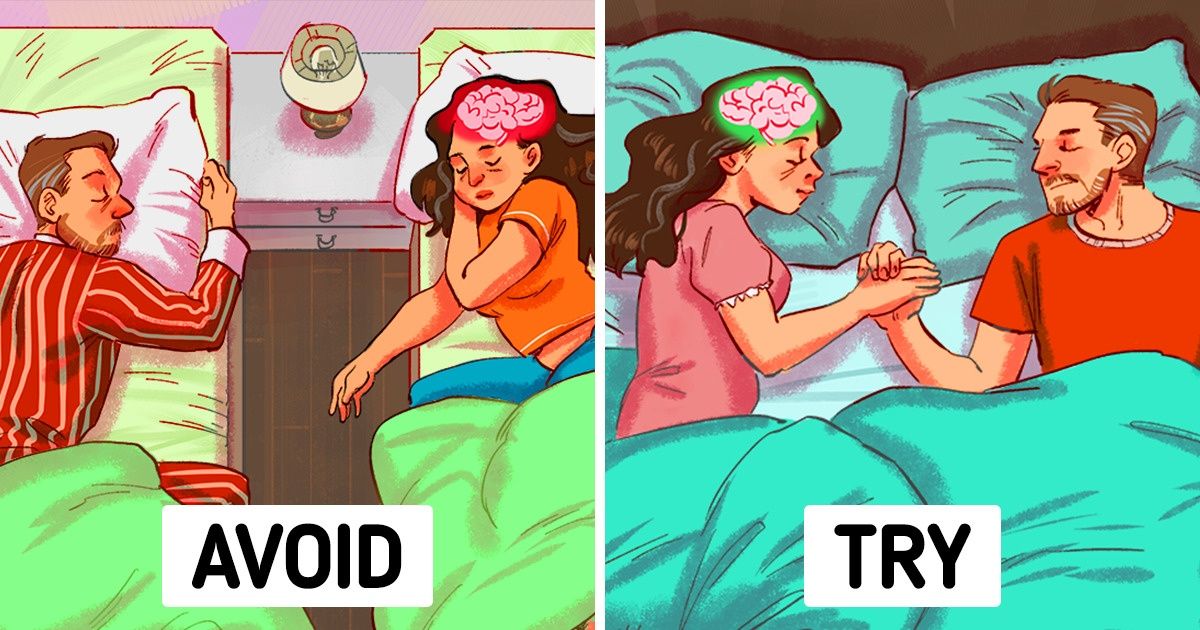
One survey found that 1 in 4 married couples sleep in different beds. And it’s not always because the spark is gone. Sometimes, poor sleep quality due to different bedtime habits or schedules can be the culprit. But great minds have found that sharing the bed with your sweetheart — despite the loud snores and the never-ending battle for the blanket — might actually make you healthier and happier.
Bright Side summarized relevant points from experts, which explain why catching Zs next to your loved one may be worth all the hassle.
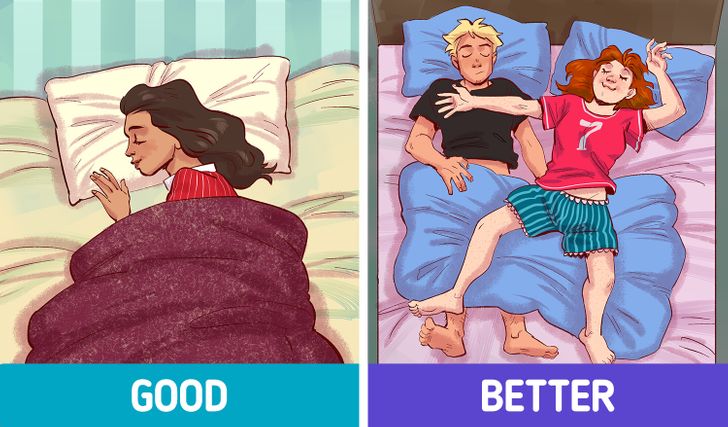
One experiment compared the sleep levels of couples when they dozed off together, versus when they were apart.
The research team concluded that individuals who slept next to their partners, had increased levels of Rapid Eye Movement (REM), compared to when they hit the sack separately.
REM is good for the body since, at this stage, our brains become more active. And this benefit extends to our waking life by helping with memory organization, emotion regulation, creative problem solving, and social interactions.
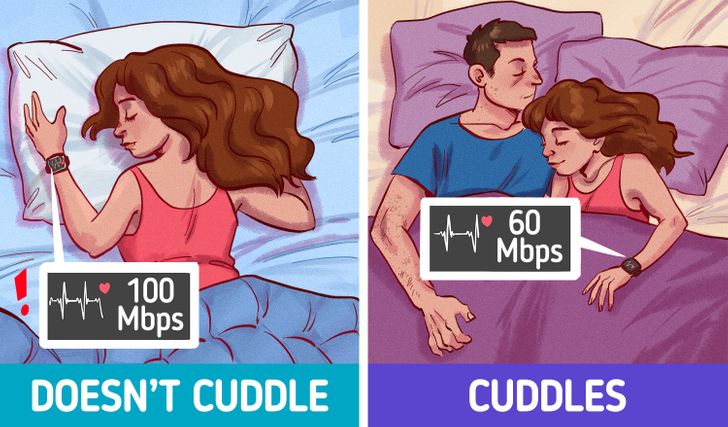
The act of hugging releases the hormone oxytocin, which helps reduce stress and promotes emotional responses related to relaxation, trust, and psychological stability.
Scientists also studied the effects of hugging on women’s blood pressure. And they found that respondents who were embraced more had the lowest blood pressure and heart rates.
High levels of oxytocin also lower the production of the stress hormone cortisol. In elevated amounts, cortisol could trigger inflammation, heart disease, and other auto-immune disorders.
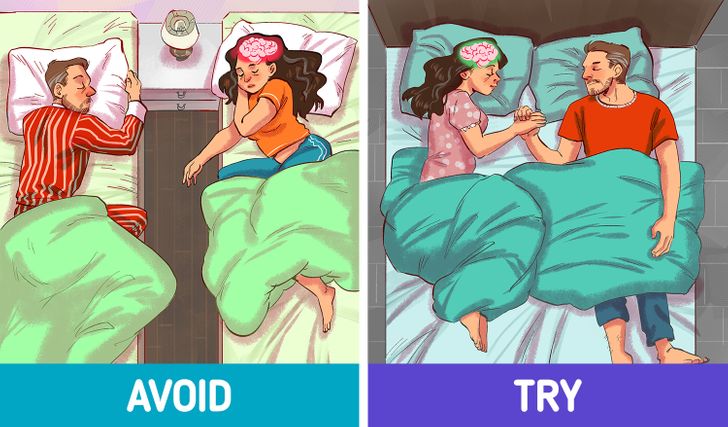
Touching is a very powerful tool that can do wonders for the body. In one psychological study, women’s anxiety levels were measured through the way their brains lit up in an MRI scan.
When the subjects held hands with a random person from the experiment, their stress level reduced.
But when they interlocked fingers with their spouses, their anxiety completely went down — scientific proof that our Significant Others can affect our health.
Sleep apnea (which affects throat muscles and tissues, and causes you to stop breathing) is a potentially serious disorder, if not caught or treated early.
Its symptoms include heavy snoring, choking, and gasping. And having a partner by your side, who can pay attention to these signs, may be crucial during these times.
One article also reported how a man who always cuddled with his wife, immediately noticed when she was having a seizure. Essentially, partners are very important when it comes to addressing possible medical problems.
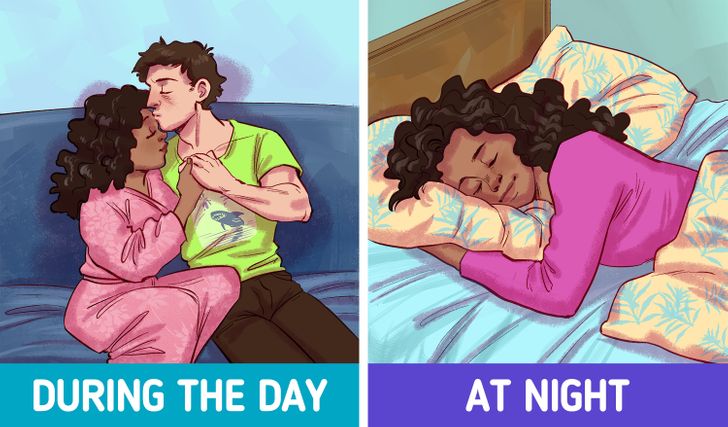
Research findings have indicated that a healthy romantic connection, could lead to less stress and better slumber. While a stressful relationship will more likely cause sleep disturbances and disorders.
The experts also found that women who had a positive interaction with their partners during the day slept better at night. Meanwhile, it’s the reverse for men — those who enjoyed good, quality shut-eye, were more likely to interact better with their partners the following day.
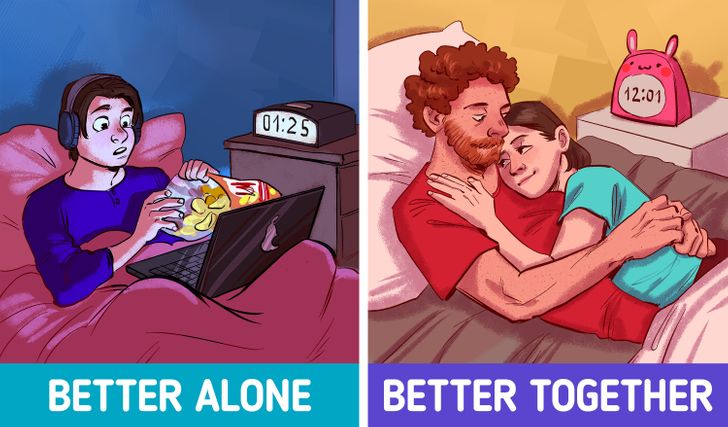
Drifting off to dreamland with your beau next to you may sound ideal, but experts also warn about possible mismatches with sleeping preferences. For example, a person with insomnia can affect the bedtime pattern of his or her better half.
Differences in preferred temperature, work schedules, or habits (like watching TV from bed) may also affect one’s quality of rest. Couples with marital problems probably won’t reap as many benefits as well.
At the end of the day, it’s better for partners to adapt to sleep routines that will fit their individual needs.
Do you agree with the points mentioned? Do you sleep better when you are by yourself, or when you are next to your partner?











